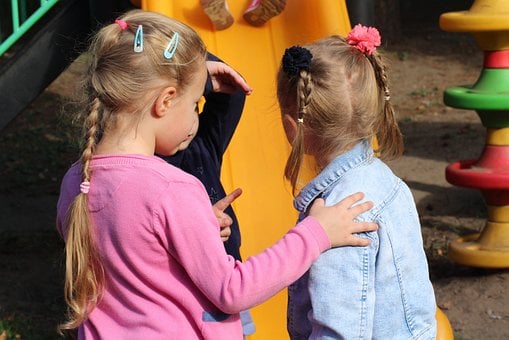Nurturing Kindness: Raising Compassionate Children in a Complex World

Nurturing Kindness: Raising Compassionate Children in a Complex World
In today's fast-paced and often challenging world, instilling kindness in children has become more crucial than ever. Kindness is not just a virtue; it's a skill that can be taught, practiced, and refined. By fostering compassion and #empathy in young minds, we lay the foundation for a more understanding and harmonious society.
The Importance of Kindness Kindness goes beyond simple politeness.
- It involves genuine concern for others, the ability to empathize, and the willingness to act on those feelings. Kind children are more likely to have positive relationships, better #mental- #health, and greater success in various aspects of life. Moreover, they contribute to creating a ripple effect of positivity in their communities.
Leading by Example Children are keen observers, constantly learning from the adults around them.
- Parents, caregivers, and #educators #play a pivotal role in demonstrating kindness. Simple acts like helping a neighbor, volunteering, or showing compassion to animals can leave lasting impressions on young minds. When children see kindness in action, they're more likely to emulate it.
Encouraging Empathy Empathy is the cornerstone of kindness.
- To #nurture this quality, engage children in conversations about feelings. Ask them how they think others might feel in different situations. Books and stories can be powerful tools in this regard, offering windows into diverse experiences and emotions. Encourage children to put themselves in others' shoes, fostering a deeper understanding of different perspectives.
Practicing Gratitude Gratitude and kindness often go hand in hand.
- Teach children to appreciate what they have and the efforts of others. Establish routines like sharing daily gratitudes at dinner time or keeping a gratitude journal. This practice not only promotes kindness but also contributes to overall well-being and happiness.
Creating Opportunities for Kind Acts Provide children with chances to practice kindness.
- This could involve participating in community service, helping younger siblings, or creating care packages for those in need. Emphasize that kind acts, no matter how small, can make a significant difference. Celebrate these efforts, reinforcing the positive impact of their actions.
Teaching Inclusive Behavior In our diverse world, it's crucial to teach children to be kind to everyone, regardless of differences.
- Expose them to various #cultures, abilities, and backgrounds. Encourage friendships with diverse peers and address any prejudices or stereotypes they might encounter or #express.
Developing Emotional Intelligence Help children identify and manage their own emotions as a stepping stone to understanding others.
- Teach them coping strategies for difficult feelings, which in turn can help them respond with kindness even in challenging situations.
Implementing Kindness in Education Schools can play a vital role by incorporating kindness into their curriculum.
- This might include kindness-themed projects, peer mentoring programs, or recognition for acts of compassion. Such initiatives create a culture where kindness is valued and practiced daily.
Addressing Unkind Behavior When children exhibit unkind behavior, use it as a teaching moment rather than purely as a disciplinary issue.
- Help them understand the impact of their actions and guide them towards making amends. Encourage reflection on how they could handle similar situations more kindly in the future.
The Long-Term Impact By consistently encouraging and teaching kindness, we equip children with essential life skills.
- Kind individuals are often more resilient, have stronger relationships, and are better prepared to navigate life's challenges. Moreover, they contribute to building a more compassionate and understanding world.
In conclusion, fostering kindness in children is a multifaceted approach that involves modeling, teaching, and providing opportunities for practice. It requires patience, consistency, and dedication. However, the rewards – both for the individual child and society at large – are immeasurable. By nurturing kind hearts and minds, we pave the way for a brighter, more empathetic future.
- Raising Peaceful Learners: The Montessori Advantage
- CDA Bridge Bundle: Family Child Care without Portfolio Review
- Self-Regulation & Change: Helping Children Cope
- CDA Bridge Bundle: Infant/Toddler without Portfolio Review
- 45 Hour Child Growth and Development
- 45 hour Growth and Development Birth-age 12 ONLINE
- CDA Bridge Bundle: Preschool without Portfolio Review
- Cultures in the Classroom
- Brighter Futures: Social Emotional Development
- Exploring the World: Fun and Educational Social Studies Activities for Preschoolers
- Nurturing Kindness: Fostering Prosocial Behavior in Young Children
- Nurturing Happiness in Children: A Guide to Raising Joyful, Well-Adjusted Kids
- Nurturing Kindness: Raising Compassionate Children in a Complex World
- How Not to Raise a Narcissistic Child: Stop Your Little Prince or Princess from Becoming a Tyrant
- Sep 21 – International Day of Peace: Foster Harmony and Understanding in Your Classroom
- Peace Education and Grace and Courtesy in Montessori Education
- Mirror Mirror on the Wall: Whimsical Ways to Prevent Bullying Tendencies in Kids, Inspired by Fairy Tales
- World Kindness Day: Inspiring Activities to Promote Compassion and Kindness in the Classroom
- Kindness is King: Teaching MLK’s Principles Through Acts of Kindness
- Daycare Training That Makes a Difference: Skills Every Caregiver Needs Today
- 🌟 Raising Capable Kids: Helping Children Become Confident and Independent Individuals 🚀
- Beyond the Ratios: Unlocking the Secrets to a High-Quality Childcare Center 🚀